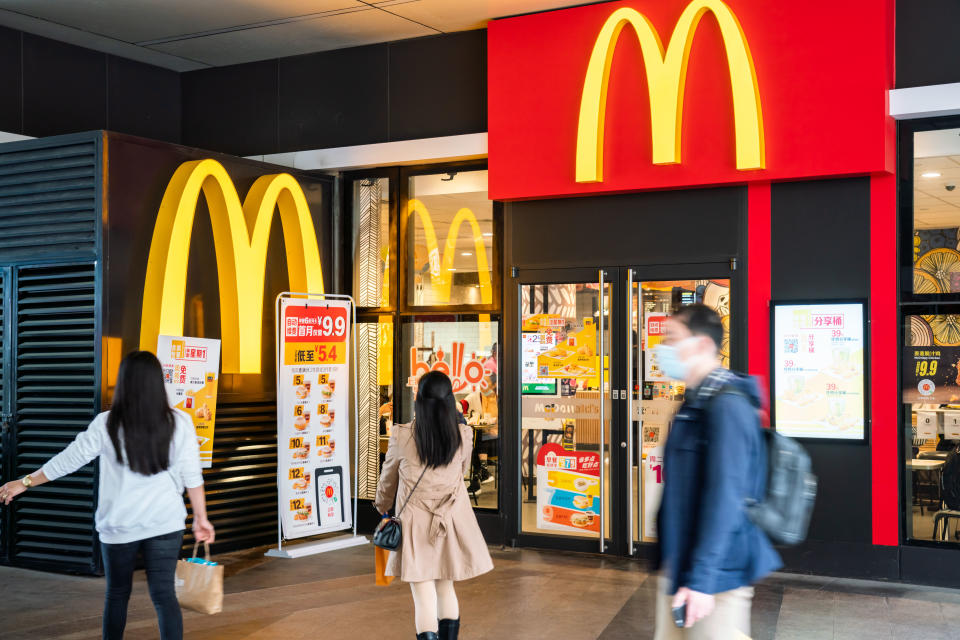McDonald's adds plant-based burgers to menu as firms vie to hit net-zero

McDonald’s (MCD) is set to introduce “McPlant” to menus, a set of plant-based meat alternatives, in the latest move by a company to balance its carbon output.
The fast food chain is wading further into the rapidly growing lab-grown meat industry, and has said it will offer plant-based burgers, chicken substitutes and breakfast sandwiches.
It had originally opted for a trial run of a plant-based burger in Canada, manufactured by Beyond Meat (BYND).
According to Ian Borden, the president of the company's international business, the new burger will be “crafted exclusively for McDonald's, by McDonald's,” and could also be used in chicken substitutes and other menu items in the future.
Concerns over meat's effects on health, the environment and animal welfare have driven the chain, famous for its carnivorous offerings, to consider other options.
McDonald’s said in a blog post: “Markets can adopt the McPlant when they’re ready and we expect some to test the burger next year.”
WATCH: McDonald’s adding the McPlant, a plant-based burger, to its menu
The high street staple relies on flagship products such as the Big Mac and McNuggets to prop up its sales. These offerings account for around 70% of sales in key markets.
READ MORE: UK citizens tell government: We'll eat less meat to hit climate goals
The news comes alongside research that has shown, among other measures, the UK needs to eat less meat to reach its climate targets.
To get Britain closer to net-zero emissions, the Climate Assembly UK report, published in September, backed proposals including the large-scale planting of trees to capture carbon, reduced car usage and increased reliance on solar and wind energy.
Perhaps the most radical suggestion was a call for Brits to cut down on eating meat and dairy by 20-40%. The Assembly, which was made up of over 100 people from all walks of life, said dietary changes should be voluntary rather than compulsory and said the government had a key role to play in educating people on the impact of meat and dairy on the environment.
READ MORE: Trillions held in financial system 'fuel inequalities' in tackling sustainability
Research released over the weekend showed that the UK government is spending only a fraction of what is needed for the UK to reach net-zero before 2050.
According to the Institute for Public Policy Research (IPPR), the UK government has not yet delivered the scale of investment needed to ensure a low-carbon future, with just 12% of the funds needed currently in circulation.
The importance of reaching climate goals is increasingly rising on firms’ agendas. Barclays, BP are among other corporate giants that have made an active shift towards net-zero.
Watch: Why can’t governments just print more money?

 Yahoo Finance
Yahoo Finance 